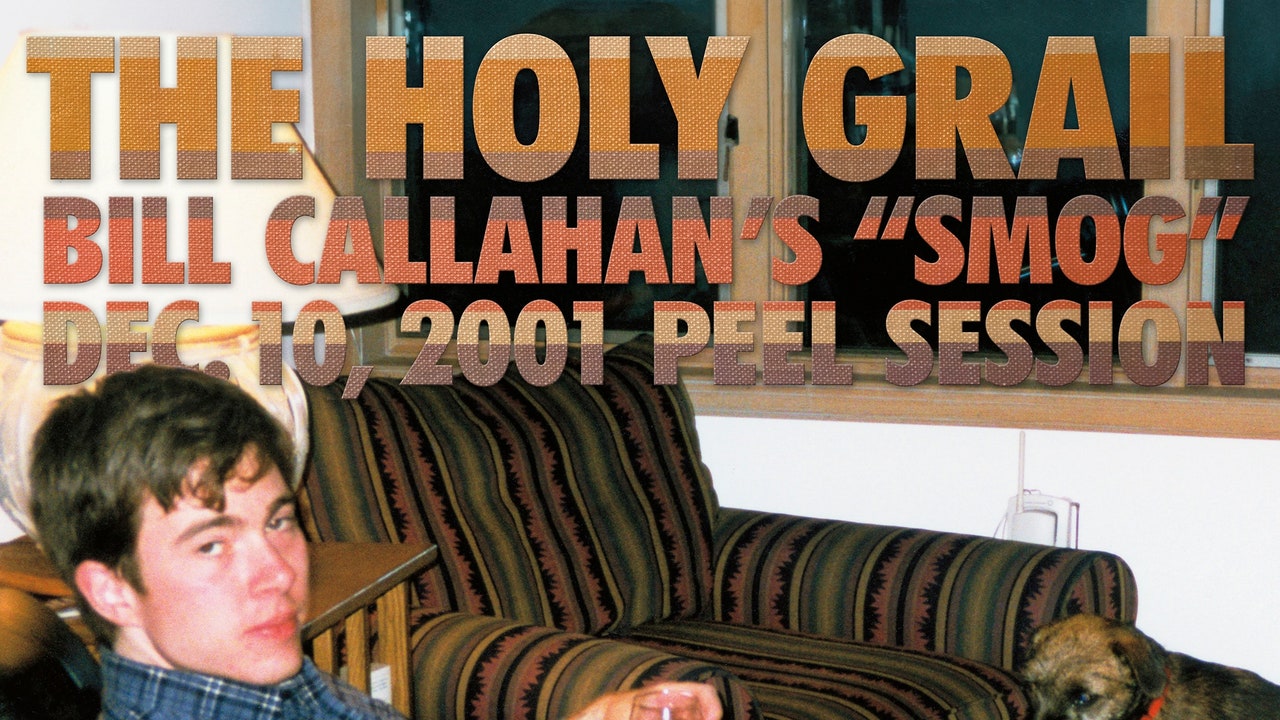As the 20th century tripped into the new millennium, dark energy rippled through the universe that Bill Callahan had dreamed into being. The music he’d spent the previous decade creating as Smog had maintained a tenuous balance of bleak beauty and wry humor. Then, for a minute there, with 1999’s revelatory Knock Knock—a breakup record and a finding-himself record that featured some of the most unburdened songwriting of his career—it seemed like maybe he’d turned a corner, tamed some demons. “For the first time in my life/I am moving away moving away moving away/From within the reach of me,” he sang on “Held,” as if the speaker’s soul was a Mylar balloon escaping the white-knuckled fist of a bitter, stunted man-child.
But gravity’s a hell of a drag, and with 2000’s Dongs of Sevotion and 2001’s Rain on Lens, Callahan was back down in the muck with his usual cast of characters: disappointing siblings, obsessive nihilists, ambivalent shut-ins, and, above all, unreliable men with broken moral compasses. In December 2001, wrapped in this darkness, he and his touring bandmates—drummer Jim White, violinist Jessica Billey, and guitarist Mike Saenz—stepped into the BBC’s Maida Vale studios. The set they recorded that day with John Peel, two Smog originals and two covers, has finally made its way to record, billed as The Holy Grail. Despite its tongue-in-cheek title, for the Callahan faithful, it’s a fantastic find—a snapshot of the artist and his band at their most stripped down, highlighting his music’s sinister yet generous essence. The inclusion of two covers, something of a rarity in Callahan’s repertoire—and not just any two covers; the Velvet Underground and Fleetwood Mac, of all bands—only sweetens the deal.
Critics in those years, particularly in the UK, tended to treat Callahan like an incurable pessimist; the Smog songs that Callahan chose that day certainly don’t seem meant to disabuse them of that notion. Both tracks prod ominously at the ambiguous sexual underbelly of his work, stirring up uncomfortable questions about how much we’re meant to sympathize with the songs’ grim protagonists.
“Cold Discovery,” from Dongs of Sevotion, doesn’t sound unduly severe at first. Where the album version weaves flanged guitar, piano accents, and whispering drums into a downy two-chord shuffle, the Peel version is stark and unadorned, with a hint of distortion on the twinned guitars, and brushes on the drums hissing out a funereal beat. Still, there’s something hypnotic about its rising and falling motion; the sweetness of Callahan’s baritone papers over the hints of desolation in the lyrics. He sings of warm returns and bitter leave-takings; the first stanza might conceivably be about a beloved stray cat. But he lets loose with the chorus: “I could hold a woman down on a hardwood floor,” an incongruously sing-song lilt coloring his voice. The band surges like ocean swells, reflecting shades of Swans’ or Sonic Youth’s steely dronescapes. He repeats the line, as though rubbing our faces in it. But as in most Callahan songs, there’s a twist. The violence, if that’s what it is, is reciprocal, as her teeth “gnash right through me/Looking for a soft place.” The “cold discovery” of the title is his fundamental lack: Searching for empathy and vulnerability, his lover finds none. It’s a damning self-assessment.
